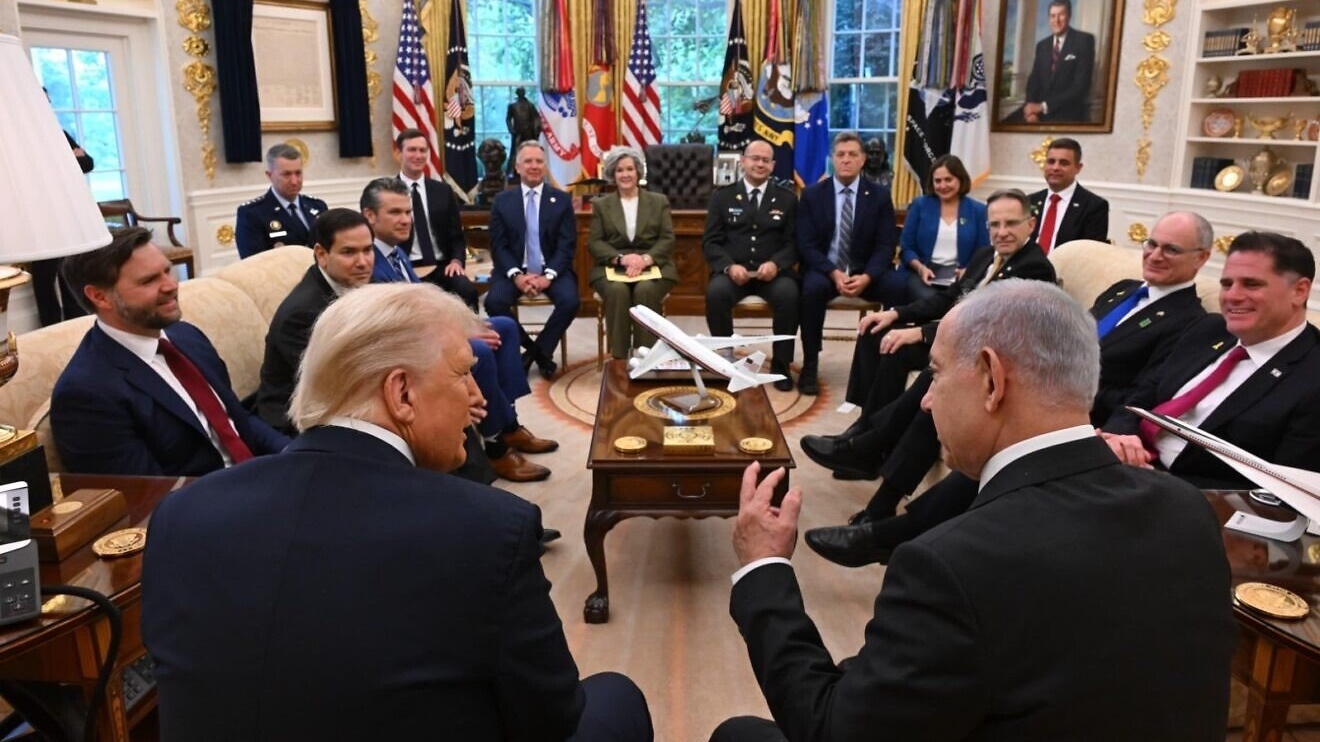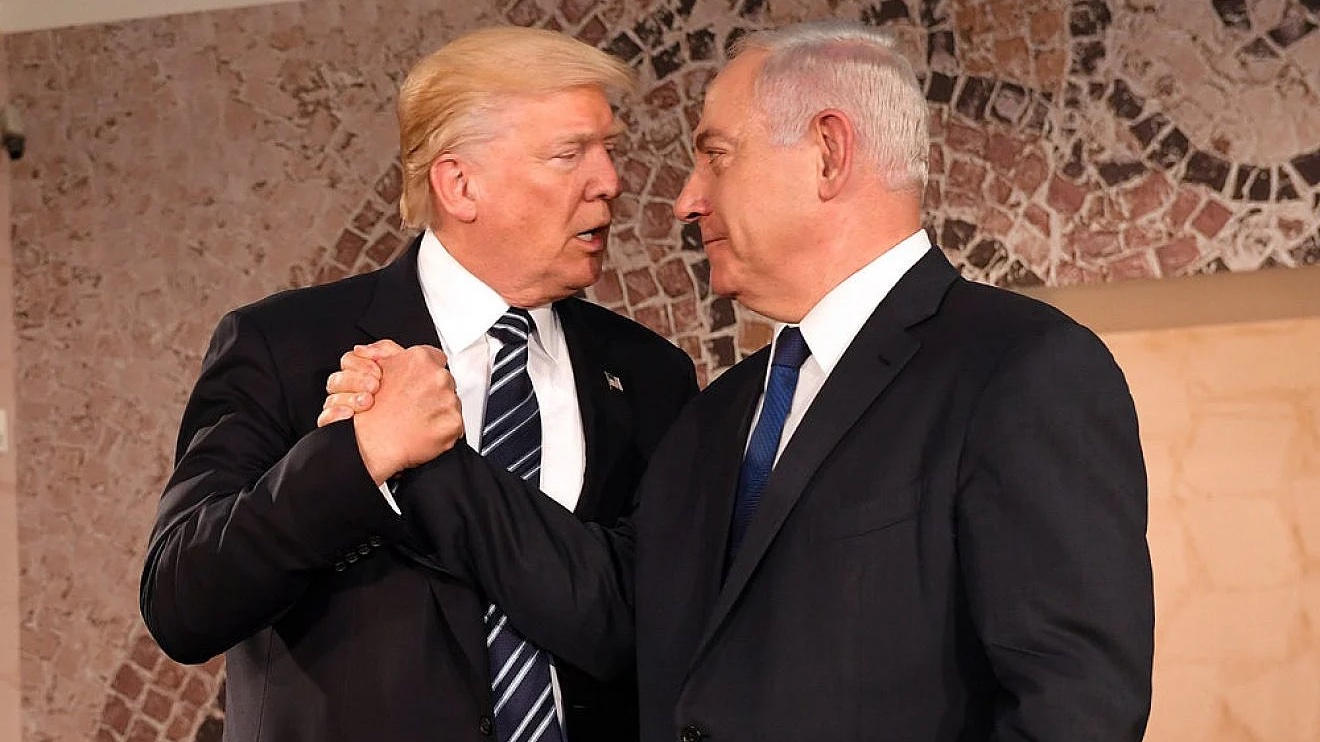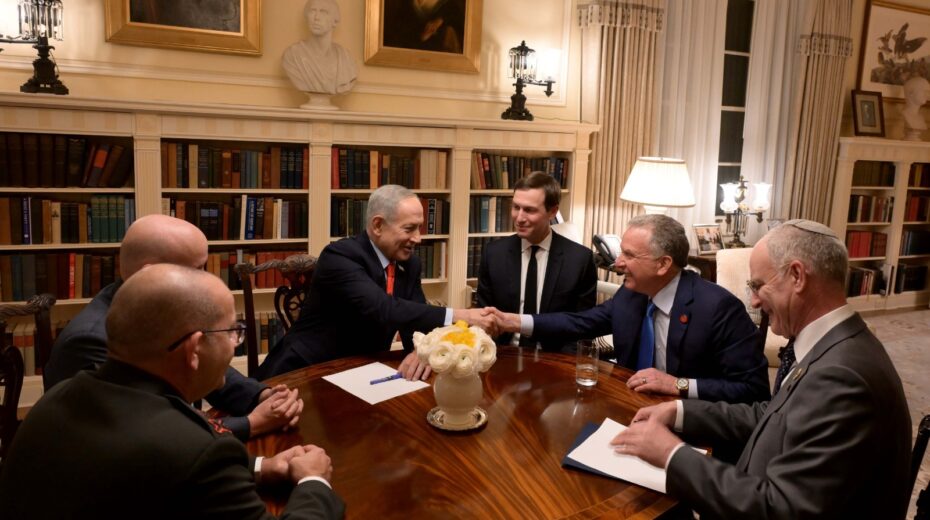US President Donald Trump and Israeli Prime Minister Benjamin Netanyahu unveiled a sweeping plan on Monday to end the Gaza war, setting a 72-hour deadline for Hamas to release all remaining hostages or face renewed military escalation with Washington’s full backing.
The proposal envisions Hamas’s complete disarmament, the return of hostages, the release of nearly 2,000 Palestinian prisoners, and the establishment of a “technocratic, apolitical Palestinian committee” to govern Gaza under an international umbrella led by the United States. Trump called it “a real chance for greatness in the Middle East,” while Netanyahu said it achieved Israel’s war aims.
But Israelis are split between those calling it a historic breakthrough and those warning it is built on fantasy.
Netanyahu: “We isolated Hamas”
Speaking after his White House visit, Netanyahu called the plan “historic,” saying Israel had succeeded in turning global pressure against Hamas rather than against the Jewish state.
“We will bring back all our hostages, both the living and the dead alike, while the IDF remains in most of the Gaza Strip. Who would have believed that?” he said.
The prime minister stressed that there is no clause for a Palestinian state, dismissing claims to the contrary. “President Trump made clear this would be a huge reward for terror and a danger to Israel,” Netanyahu said.
Security establishment divided
Retired Brig. Gen. Amir Avivi, founder of the Defense and Security Forum, praised the plan as “a total victory for Israel.” He said it secured every war objective: hostage release, Hamas’s defeat, and continued Israeli security control in key areas including Rafah and the Philadelphi Corridor.
“All the goals of the war are reached with this agreement. I think this is a total victory for Israel,” Avivi told JNS.
But Jonathan Conricus, former IDF international spokesperson, called the plan dangerously naïve. “I hope Hamas will accept the proposal and that we will get our hostages back. I doubt Hamas will have the heart or the wisdom to do so,” he said.
He argued Hamas would never voluntarily disarm—doing so would contradict its jihadi creed and invite vengeance from angry Gazans. “The order of the day for the IDF will be to continue and enhance pressure on Hamas—to fight above and below ground,” Conricus warned.
Conricus also questioned Trump’s suggestion that countries like Turkey and Pakistan could help govern Gaza: “Both have backed Hamas. Who are these so-called technocrats supposed to be?”
Political class split along familiar lines
Inside Israel’s fractious politics, Trump’s proposal has scrambled alliances. Netanyahu loyalists hailed it. Communications Minister Shlomo Karhi called it “peace through strength—surrender or be destroyed,” while Likud lawmaker Avichay Buaron declared, “This is what total victory looks like!”
President Isaac Herzog praised the plan as “real hope” for securing hostages and reshaping Gaza’s future. Opposition leader Yair Lapid agreed, calling it the “right basis” for ending the war. Benny Gantz said the plan must be implemented to ensure Hamas’s defeat and Israel’s operational freedom.
But far-right figures such as Bezalel Smotrich and Itamar Ben-Gvir have so far withheld comment. Ben-Gvir previously warned against any compromise with Hamas, and Smotrich has long opposed foreign involvement in Gaza’s governance. Their eventual response could prove decisive inside Netanyahu’s fragile coalition.
Hostage families weigh in
The Tikva Forum, representing families opposed to concessions, cautiously welcomed the plan but warned against premature celebrations. “If Hamas violates its commitments, we demand that the United States and Prime Minister Netanyahu continue military action until Hamas is destroyed,” the group said.
The broader Hostages and Missing Families Forum struck a different tone, calling Trump’s proposal “historic.” They thanked him for his “unwavering commitment” and urged Israel to seize the chance to bring home the remaining 48 captives.
The stakes
For Trump, the plan is a bid to secure what he called “greatness in the Middle East.” For Netanyahu, it is a chance to claim victory after two years of war. For Israel’s security community, it is a gamble: can Hamas really be pressured into disarmament—or will the IDF inevitably return to the battlefield?
As one analyst put it, Trump has managed to flip the script internationally, channeling Arab and Muslim pressure onto Hamas. The question now is whether Hamas will fold—or prove once again that in the Middle East, “total victory” rarely comes without a price.
Want more news from Israel?
Click Here to sign up for our FREE daily email updates














